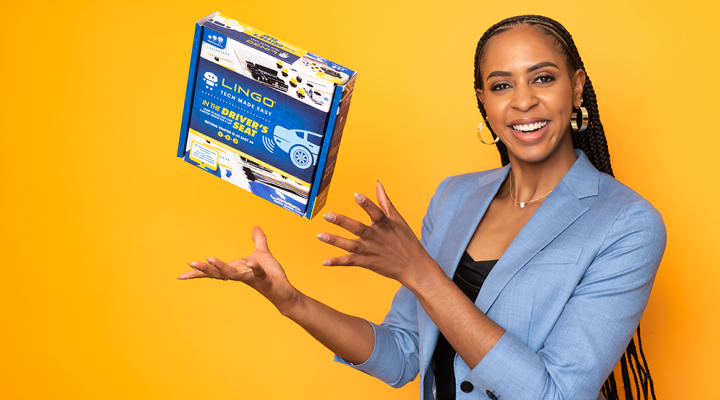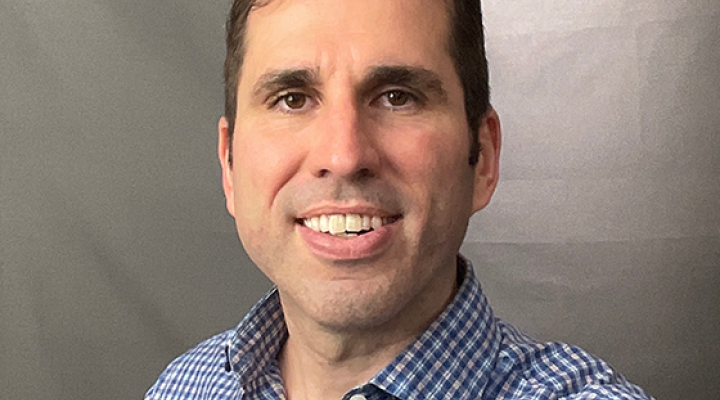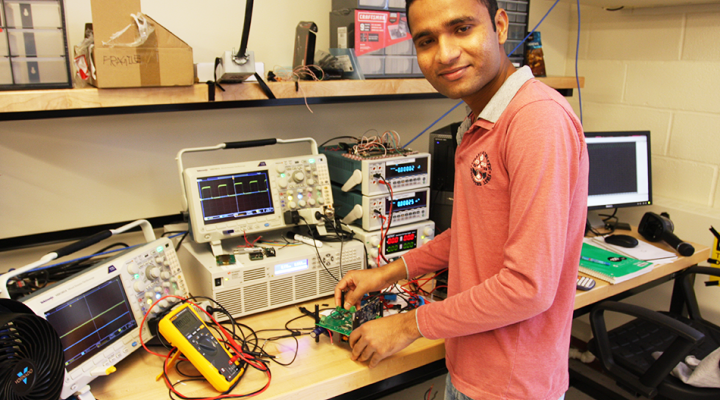ECE junior Alicia Coto interviewed entrepreneur and alumnus Susie Kim Riley about her time at Cornell and her experience as a successful woman in business. Riley is founder and CEO of Aquto, a company focused on bringing the ecosystem of mobile operators, marketers and app publishers together through data sponsorship. Aquto was recently acquired by Mavenir.
What did you enjoy most about electrical engineering at Cornell?
For my senior project, I worked with a great professor who gave me a very high-level goal but was very hands off. A junior-level semiconductor class required this manually intensive measurement experiment to determine the characteristics of a semiconductor and how it behaves under different temperature scenarios. He told me to automate it. I accomplished my goal and in subsequent years, everybody used my senior project to do this experiment. It was a nice feeling.
What’s so nice is that today, there’s much more hands-on project activity at Cornell. It teaches you independence and teaches you how to be an engineer. It’s not really about class work. Figuring out the best way to solve the problem in front of you, that’s what being an engineer is about. I would say that if you have an opportunity to join an engineering project team, do it. I would do it in a heartbeat if I were back at school.
What did you most dislike?
Superlab! It was required by all juniors. They taught motors and power with big generators and motors in a huge, noisy lab. I was not interested in motors or winding, but the course was mandatory. I got my worst grade at Cornell—and got electrocuted in a lab! I think it hated me and I hated it.
Is there anything you wish you had done differently?
I wish I had taken advantage of more electives in the arts. I took German, art history, literature. I wanted to take things like painting and pottery but I just didn’t have the time. Between the social stuff and studies, there was very little extra time.
If you can, try to balance it out and take those interesting classes. They’re broadening and make you a more capable person after college. Life isn’t just about engineering.
Tell me about the trajectory of your career.
I graduated and married my college sweetheart and we stayed in Ithaca while he got his Ph.D. at Cornell. There were few engineering jobs in the area at that time, but I found one. Within months of joining, they lost a big contract with GE. They still needed to deliver on some projects, so they laid off everybody else except me because I was multifunctional and could do both hardware and software. After about a year, we got the contracts back. I learned a lot, but it was not a fun career experience.
Eventually my husband got his Ph.D. and we detoured through Minnesota for a year where I worked at another engineering company, but that was not a great experience either.
Finally, we went to Boston and I joined a company called Proteon whose protocols laid the foundation for the internet today. I found that one of the best ways to learn is to do all of your work and then go help other people finish their projects, so that’s what I did for almost five years.
I joined a startup developing new technology called asynchronous transfer mode that could move information around very quickly. I was their software/technical lead and threw myself at it. A couple years in, I got pregnant unexpectedly. But it was the best possible thing because I had my first child. It was difficult balancing everything. We went public first and then were acquired for $1 billion, which back in 2000 was a huge deal.
I then joined a friend’s company, and had my second child while I was there. That company sold for $2.4 billion, but I take zero credit for that one.
After that, I started Camiant as the sole founder. More than six years later, I sold that to Tekelec for $130 million, and stayed on as the Chief Marketing Officer. Ultimately, Oracle bought Tekelec for $1.3 billion.
I became the entrepreneur-in-residence for the venture capital firm that funded my prior startups. After nine months of sitting on the bench, I decided to start another company called Aquto, and that’s where I’ve been for the last five and a half years.
For a current student starting out after graduation, would you suggest startups as the way to go?
There are so many startups now, you get to learn a lot and you get to wear lots of different hats. And the nice thing about startups today is that whatever you do actually matters. It will all go out the door and you can put your fingerprint on it. And for me I always took great pride in seeing my stuff deployed in the world. If you choose and want to go more into the business side, you have a great foundation to do that because you understand technology.
Any other words of wisdom for a current ECE student at Cornell?
Figure out what interests you and look for startups in that space. Dive into it. Do/learn as much as you can. Chart your own path. Too many times I hear these stories where people say, I want to have a certain quality of life so I’m just going to put in the hours. That’s just not the right attitude. If you want to have an impact, go out and throw yourself at it.
In your opinion, what does it take to be successful?
- Put yourself out there.
- Be willing to be accountable.
- Deliver.
- Don’t be fearful of work.
- Be confident but do it with humility. Don’t be cocky.
- Be capable and be helpful.
- Take the initiative.
- When you accomplish something, make noise but not too much. Don’t look like a try-hard, but showcase your ability.
If you can tackle work with this combination, with this approach, then people will start to recognize that and respect it.
How have you balanced life as a female engineer with a family and how did that affect your career?
Balance is a hard one. To me the hardest thing to be is an impactful professional, mother and wife. That combination is very hard to pull off. I think it’s gotten a lot better with this generation and I think it’s also dependent on your partner. Having a partner who is very supportive and helpful is key.
Some advice: never feel like you have to make a choice between career and family. Don’t be afraid to do both. But stay on the treadmill—it’s not easy, but it’s hard to get back on, so figure out how to stay on even if you have to do it part time.
What is the biggest challenge you’ve faced in leading so many companies?
I was the sole-founder and the boss of my second startup, but the investors said I was too young and didn’t have the experience to be a CEO. So I ran the company for a few years and then they hired a couple of CEOs, neither of which worked out. Today it’s a different ballgame. Now they let the founder be the CEO, but 15 years ago, that wasn’t the case.
You want to have a balance. You have to try to keep the energy of the young people, but try to pair them up with experience. I would have loved to have an advisor who could coach me to make sure I didn’t mess things up. I think investors today try to do that. Back then it was different. What really worked against me was age, rather than my gender. But today I don’t think that’s an issue anymore.
What are your current goals for the future and what are your plans to grow your career even further?
I would like to work with other startups and help them be successful. But when I’m doing something, I like to be 100 percent focused on what I’m doing, not thinking so much about what’s next because that’s a distraction from what you’re doing right now. If you start getting distracted with other stuff it can have a real impact on the core thing that you’re trying to make successful.
Any final advice?
Don’t give anyone a reason to use being a woman and a mother as an excuse. Find roles that keep you engaged and very productive while trying to take care of personal needs.
Your mindset is so important. Don’t start to think like a victim. It’s a downward spiral. Do the best job you can. Try to put the woman thing aside. As soon as you bring up the woman thing, it changes the dynamic.




